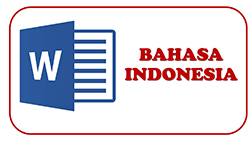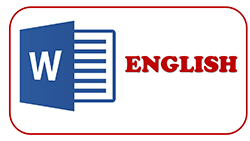Literasi Informasi Model The Big Six dalam Meningkatkan Mutu Pembelajaran di Madrasah Tsanawiyah
Abstract
In the era of abundance information is manifested in various forms and can be accessed easily and quickly. The ability to select, evaluate, and use information is important to have. This study aims to describe the implementation of the big six models of information literacy in improving the quality of learning in Madrasah Tsanawiyah. This study uses a qualitative approach to the type of phenomenological research. Data collection was done by observation and interviews. Based on the results of the study, it was found that the implementation of learning using the big six model of information literacy can improve the quality of learning. The information literacy model of The big six includes six steps, namely problem formulation, strategy formulation, location and access determination, use, selection, information integration, and evaluation. Indicators that appear in students are proficiency in finding essential information, evaluating information, and using the information to solve problems. By mastering information literacy, critical, creative, innovative spirit and students' readiness to compete in the era of globalization is also developing. In addition, students will also be accustomed to making decisions, becoming independent human learners and easy to obtain new information
Downloads
References
Anggraeni, C., Elan, E., & Mulyadi, S. (2021). Metode Pembiasaan untuk Menanamkan Karakter Disiplin dan Tanggungjawab Di Ra Daarul Falaah Tasikmalaya. Jurnal Paud Agapedia, 5(1), 100–109. https://doi.org/https://doi.org/10.17509/jpa.v5i1.39692
Anisah, G. (2020). Analisis Probematika Persiapan dan Pelaksanaan Pembelajaran Bahasa Indonesia Berdasarkan Teori Kenneth D. Moore. JEC (Journal of Education and Counseling), 2(2), 1–9. https://doi.org/https://doi.org/10.32665/jec.v2i2.454
Basri, H., & As, ari, A. R. (2018). Improving the critical thinking ability of students to solve mathematical task. JIPM (Jurnal Ilmiah Pendidikan Matematika), 7(1), 13–23. https://doi.org/http://doi.org/10.25273/jipm.v7i1.3013
Chen, C. H., & Tsai, C. C. (2021). In-service teachers’ conceptions of mobile technology-integrated instruction: Tendency towards student-centered learning. Computers & Education, 170,104224. https://doi.org/https://doi.org/10.1016/j.compedu.2021.104224
de Bruin, K., de Haan, Y., Vliegenthart, R., Kruikemeier, S., & Boukes, M. (2021). News avoidance during the COVID-19 crisis: Understanding information overload. Digital Journalism, 9(9), 1289–1302. https://doi.org/https://doi.org/10.1080/21670811.2021.1957967
Dudung, A. (2018). Kompetensi profesional guru. JKKP (Jurnal Kesejahteraan Keluarga Dan Pendidikan), 5(1), 9–19. https://doi.org/https://doi.org/10.21009/JKKP.051.02
Hicks, A. (2022). Negotiating change: Transition as a central concept for information literac. Journal of Information Science, 48(2), 210–222. https://doi.org/https://journals.sagepub.com/doi/pdf/10.1177/0165551520949159
Hilse, D. et al. (2017). Information Literacy Concepts. Joyner Library.
Ilyas, I. (2022). Strategi Peningkatan Kompetensi Profesional Guru. Jurnal Inovasi, Evaluasi Dan Pengembangan Pembelajaran (JIEPP), 2(1), 34–40. https://doi.org/https://doi.org/10.54371/jiepp.v2i1.158
Komatsu, H., Rappleye, J., & S. (2021). Student-centered learning and sustainability: Solution or problem? Comparative Education Revie, 65(1), 000–000. https://doi.org/https://doi.org/10.1086/711829
Miles, Matthew B., Huberman, A. Michael. dan Saldaña, J. (2014). Qualitative Data Analysis A Methods Sourcebook (3rd ed.). SAGE.
Mubasiroh, S. L. (2023). Analisis Kemampuan Literasi Informasi Mahasiswa dengan Model The Seven Pillars of Information Literacy dalam Pembelajaran Daring. LITERASI (Jurnal Ilmu Pendidikan), 14(1). https://doi.org/http://dx.doi.org/10.21927/literasi.2023.14(1).%25p
Mulyasa. (2014). Manajemen Pendidikan Karakter (4th ed.). Bumi Aksara.
Musaddat, S. (2013). Pendidikan Bahasa Indonesia Kelas Tinggi. Arga Puji Press.
Nurohman, A. (2014). Signifikansi literasi informasi (information literacy) dalam dunia pendidikan di era global. Jurnal Kependidikan, 2(1), 1–25. https://doi.org/https://doi.org/10.24090/jk.v2i1.537
Rahmala, I. D., Suwignyo, H., & Kurniawan, T. (2018). Kemampuan Literasi Informasi Pemustaka Berdasarkan Information Literacy Standars For Student Learning. BIBLIOTIKA : Jurnal Kajian Perpustakaan Dan Informasi, 2(1), 6–12. https://doi.org/http://dx.doi.org/10.17977/um008v2i12018p006
Sutrianto, Rahmawan, N., Hadi, S., & Fitriono, H. (2016). Panduan Gerakan Literasi Sekolah di Sekolah Menengah Atas. In Direktorat Pembinaan Sekolah Menengah Atas Direktorat Jenderal Pendidikan Dasar dan Menengah Kementerian Pendidikan dan Kebudayaan.
Wickens, C. D., & Carswell, C. M. (2021). Information processing. In Handbook of Human Factors and Ergonomics, (pp. 114–158).
Windari, C. O., & Yanti, F. A. (2021). Penerapan Model Problem Based Learning untuk Meningkatkan Keterampilan Berpikir Kritis Peserta Didik. Jurnal Pendidikan Sains Dan Matematika, 9(1), 61–70. https://doi.org/https://doi.org/10.23971/eds.v9i1.2716
Winoto, Y. (2022). Peranan Literasi Informasi Para Siswa Dalam Menunjang Proses Pembelajaran Di Era Pandemik Covid-19. Dharmakarya, 11(2), 159–164. https://doi.org/https://doi.org/10.24198/dharmakarya.v11i2.32435
Wolf, S., Brush, T., & Saye, J. (2003). The big six information skills as a metacognitive scaffold: A case study. School Library Media Research, 6(June).
Wu, D., Zhou, C., Li, Y., & Chen, M. (2022). Factors associated with teachers’ competence to develop students’ information literacy: A multilevel approach. Computers & Education, 176. https://doi.org/https://doi.org/10.1016/j.compedu.2021.104360
Yanti, F., Sukarmin, S., & Suparmi, S. (. (2016). Pengembangan modul pembelajaran fisika SMA/MA berbasis masalah untuk meningkatkan keterampilan berpikir kritis siswa. Inkuiri, 4(3), 96–103. https://doi.org/https://doi.org/10.17509/jpa.v5i1.39692





.png)










